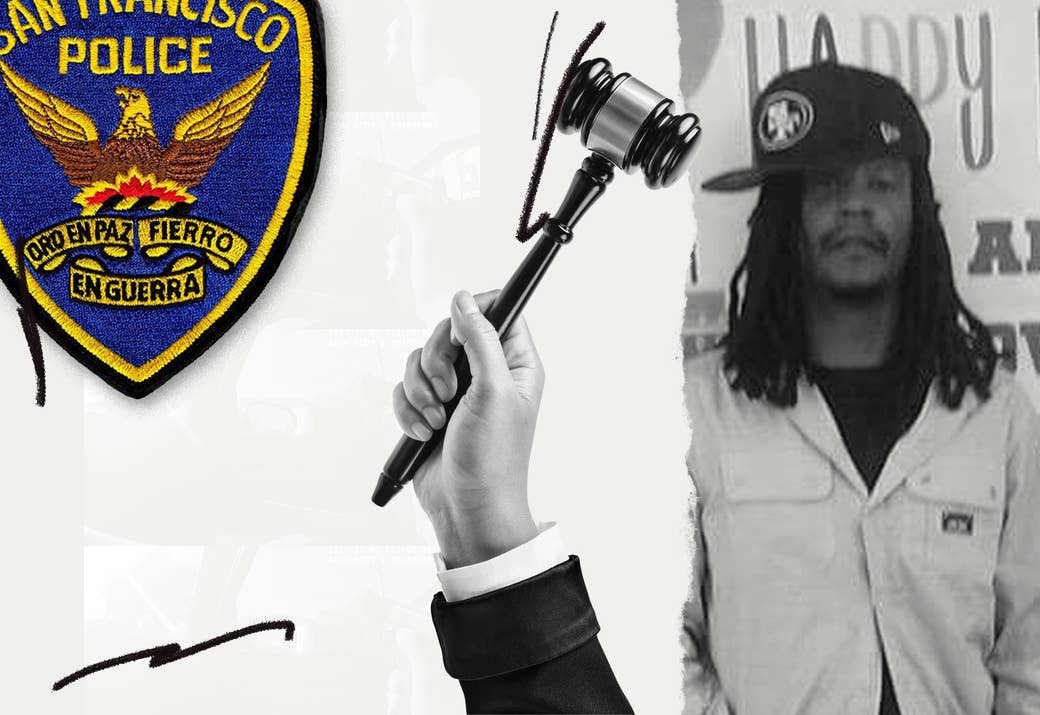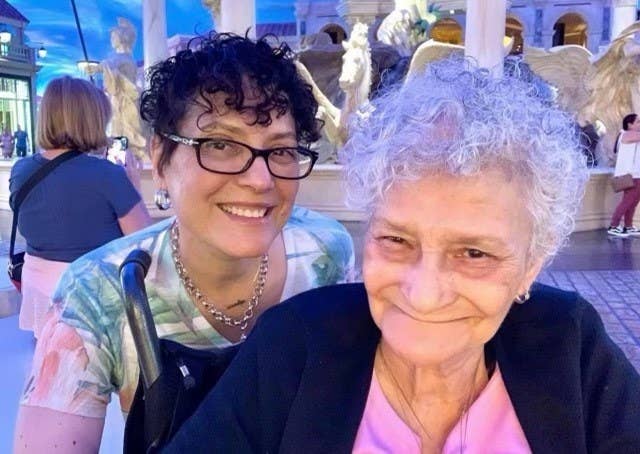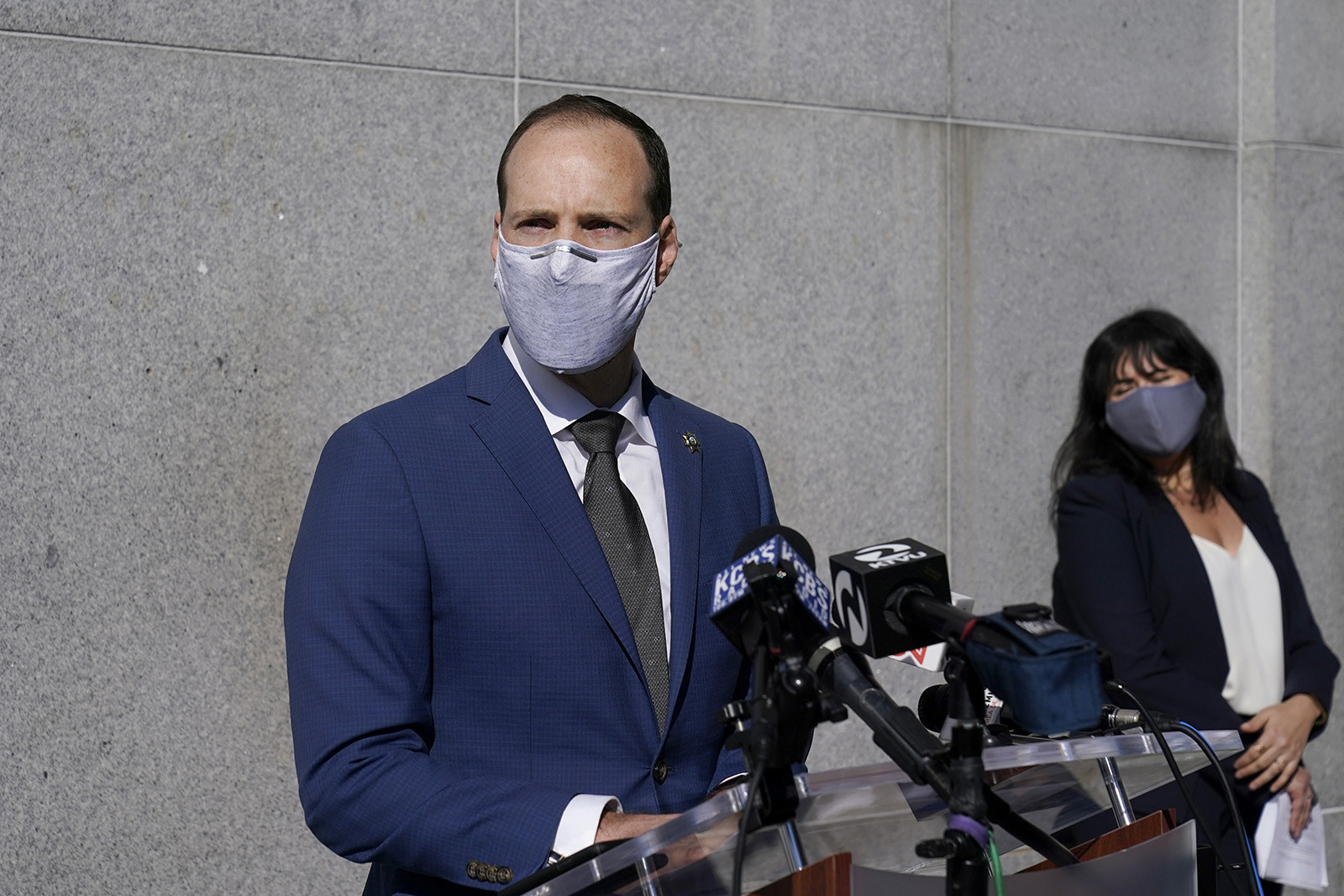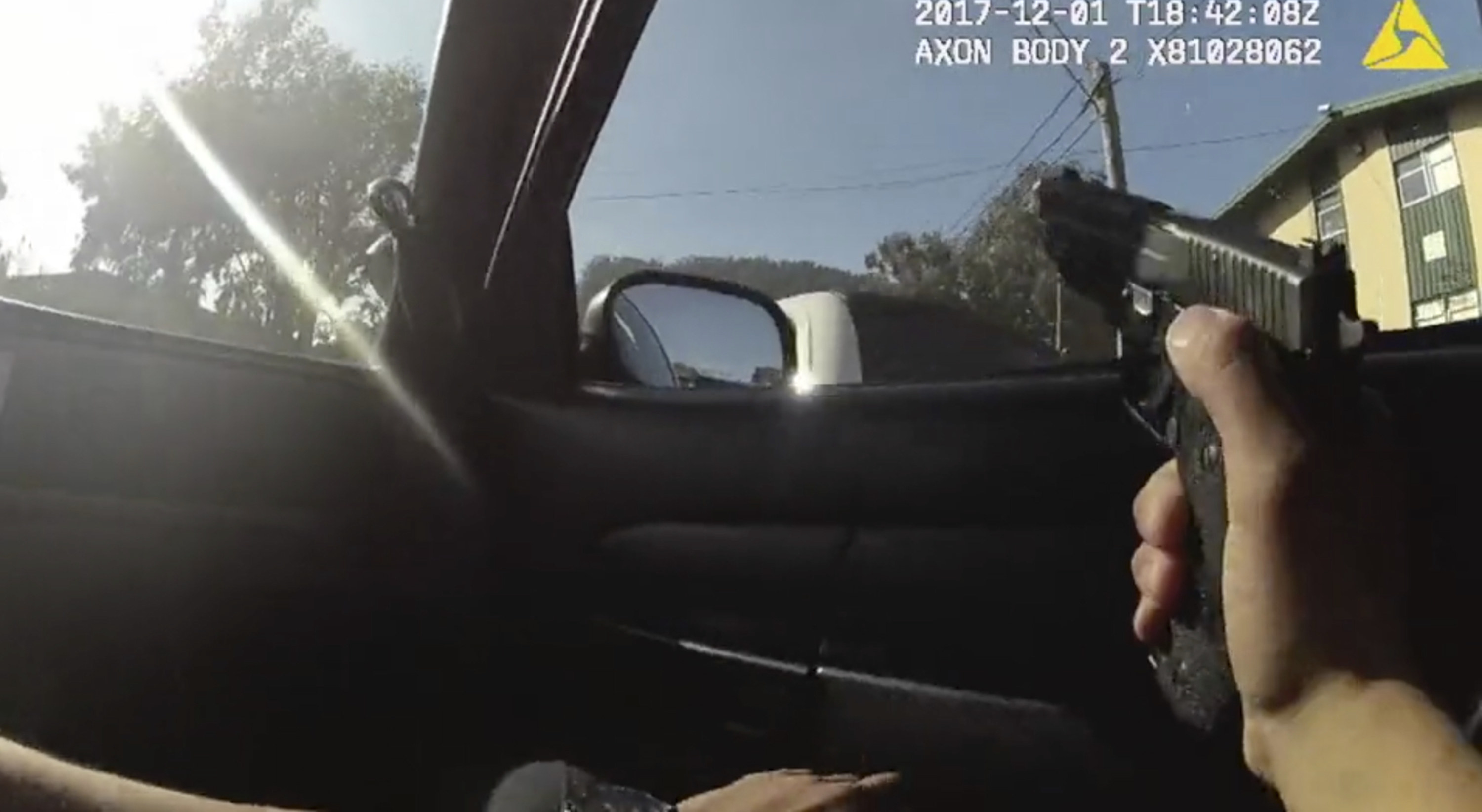
Judy O’Neil is 74 years old and has dementia, but she remembers her son was fatally shot by a San Francisco police officer almost five years ago. Her sister, April Green, serves as her caretaker and has watched the memory loss and confusion take over. All Green wants before O’Neil dies is to be able to tell her that the officer has been held accountable.
“She’s struggling with everyday thoughts as it is, but when you talk to her about her son, she knows her son is dead,” Green told BuzzFeed News.
The 58-year-old tries not to talk about her nephew’s killing much because it just makes her sister upset. But O’Neil still speaks to pictures of him, which she keeps on the nightstand beside her bed at Green’s home in Berkeley.

“He was her only child,” Green said. “When he was taken away, everything was taken away.”
On Dec. 1, 2017, 42-year-old Keita O’Neil, an unarmed Black man who led police on a chase after allegedly carjacking a state lottery minivan, was fatally shot by Chris Samayoa, a rookie cop who was in his fourth day of a field training program. Body camera footage showed that Samayoa fired his weapon through the glass window of the patrol car he was riding in, striking O’Neil as he ran by after jumping out of the van. Samayoa was fired and, almost three years later, charged with manslaughter and assault.
But after San Francisco District Attorney Chesa Boudin, who originally filed the charges, was removed from office this summer in a deeply contentious recall election, Green worries she won’t even get a chance at seeing the former officer face a jury. In August, interim District Attorney Brooke Jenkins reassigned the prosecutor who had been on the case for two years, and she postponed the next hearing to December — after San Franciscans decide if she will serve out the rest of Boudin’s term. Now, Green fears that Jenkins will drop the charges after voters head to the polls.
“I feel like I’m being played,” Green told BuzzFeed News. “Then when the election is over, she’s going to let that officer walk away with murder.”
The case is believed to be the first time in San Francisco history that prosecutors filed murder or manslaughter charges against a law enforcement officer who killed someone while on duty. For Boudin, who was elected in 2019 on a platform of criminal justice reform, filing charges against Samayoa marked the beginning of a new chapter of holding police accountable for unlawful use of force. At the time, people across the country were protesting police violence following the killings of George Floyd, Ahmaud Arbery, and Breonna Taylor.
“In San Francisco, there has been a long history of officer-involved shootings leading to no accountability whatsoever, further cementing the idea that police are above the law,” Boudin said during a November 2020 press conference. “That stops today.”
While the city agreed to pay Judy O’Neil $2.5 million last year to settle a federal wrongful death and civil rights lawsuit, the criminal case has been languishing. Green said she knows she can’t bring her nephew back, but she believes fighting for justice can give her and her sister some comfort and help change how police interact with Black men and other people of color.

Yet, almost two years after Boudin’s office filed charges, Samayoa, who has pleaded not guilty, still hasn’t faced a preliminary hearing, the legal proceeding in which a judge determines whether there is enough evidence for the case to go to trial. Before Boudin was recalled in June, the hearing had been continued from May to July at the request of Samayoa’s attorney, who argued that it could not proceed because a key homicide investigator was out on medical leave. Then in July, after Mayor London Breed appointed Jenkins to serve as interim district attorney, the hearing was rescheduled for Aug. 18. Days before it was supposed to happen, Jenkins removed the prosecutor who had been on the case since 2020 from the matter. (A representative for the office declined to comment on the reason, saying it was a personnel issue.)
Green pleaded for the prosecutor, who had a deep knowledge of the case, to be brought back in a recent meeting with Jenkins and Darby Williams, the new managing attorney overseeing police misconduct investigations. The attorneys tried to reassure her that they were on her side and that she could trust them, Green said. But then, according to Green and a lawyer who attended the meeting with her, Williams told her that in order to move forward with the case, they needed proof beyond a reasonable doubt “and then some.”
To Green, that suggested the prosecutors were using a higher standard of proof for a case involving a police officer than the law requires for anyone else.
“Why does he get special treatment? Because if my nephew was the one that shot that officer in the line of duty, as a Black man, he would be right now on death row,” Green said. “This man is walking away free, freely living his everyday life with his family, and my nephew is dead.”
Randy Quezada, a spokesperson for the district attorney’s office, said Williams believes her comment was misunderstood.
“In assault-based cases (shootings, fights, etc.), the prosecution has an additional burden: to be able to disprove the anticipated claims of self-defense (or defense of others) by proof beyond a reasonable doubt,” Quezada said in a statement to BuzzFeed News. “This is particularly true in police officer cases where the claim is the charge of murder or manslaughter, and the question exists as to whether or not the shooting/killing/use of force was lawful.”
Even as he noted that police officer cases have particular issues around self-defense claims, he said the office does not treat police differently than the general public.

“We don’t make special standards for police, if anything, we are treating police like all citizens when we evaluate the reasons for the killing in our charging decisions,” Quezada said.
The Samayoa case is just one of several pending criminal cases against police that the district attorney’s office is reviewing. After being named as the new head of the unit that investigates police misconduct, Williams said she planned to take a “deep dive” into all cases filed against officers during Boudin’s administration.
“There’s a number of cases that are going to be very critical for me to review and to spend some time with,” Williams said, the San Francisco Standard reported. “I want to go in with a fresh set of eyes, my objective mindset.”
Quezada said Williams and Samayoa’s counsel agreed to continue the case to give Williams time to “evaluate” and “come up to speed on the matter.”
At a recent community meeting, the interim DA did not provide a direct answer when asked by an audience member whether she would commit to prosecuting 10 officers, including Samayoa, charged under Boudin.
“Any cop that has broken the law will be prosecuted,” Jenkins told the crowd, according to Mission Local. “If we can prove that case, we move forward.”
But Jenkins’s critics and political rivals say the reevaluation of the Samayoa case and other police misconduct cases is an attempt to pay back her political allies, mainly the San Francisco Police Officers Association — one of Boudin’s biggest detractors. Though the police union did not officially endorse the recall, the SFPOA spent $650,000 to defeat Boudin’s campaign in 2019 (it failed). The union is currently paying for Samayoa’s legal fees. Quezada told BuzzFeed News the assertion that Jenkins’s team is delaying the cases as a favor to police is not true.
“The mayor has been very close to the police union, and what this feels like is the police union is influencing the district attorney’s office through the mayor’s office,” said John Hamasaki, a criminal defense attorney and former police commissioner who is running against Jenkins in the November election. “That's just bad for criminal justice if police are seen as above the law or protected by politicians.”
Joe Alioto Veronese, a civil rights attorney, former reserve police officer, and former investigator for the DA’s office who is also running for district attorney, said it’s clear to him that Jenkins is delaying the case to avoid criticism over dismissing the charges — as he and others expect she will do — before the election.
“This is not a complicated case when you look at the facts,” Alioto Veronese said. “She’s creating excuses and extra legal thresholds that are totally unnecessary.”
But to Samayoa’s lawyer Julia Fox, it’s Boudin who politicized this case. She previously described his office’s push to hold the preliminary hearing before his recall as “a political Hail Mary.” Fox, whose firm Rains Lucia Stern St. Phalle & Silver represents over 200 police unions across California, told BuzzFeed News that Jenkins’s review represents a reinforcement of ethics in the district attorney’s office.
“In my limited interactions with Ms. Jenkins’s team, all I can come away with is that I am awestruck and refreshed at the level of integrity that they have displayed and the thoughtfulness that they’re showing in reviewing their cases,” Fox said.
In a phone interview with BuzzFeed News this month, Boudin stood by his decision to charge Samayoa, saying that the evidence is there.
“I have no doubt that a judge would have [moved] the case over for trial after the preliminary hearing, had it been allowed to go forward,” he said.
The former DA, who was ousted amid frustration over property crime, the drug epidemic, and anti-Asian violence, said the filing of charges against Samayoa was historic and critical to the integrity of the criminal justice system.
“When police are allowed to get away with murder, it undermines public trust in every single case that prosecutors attempt to secure a conviction in,” Boudin said. “We filed [the Samayoa case] simply because of what the facts of the law show and because of a broader commitment to investigate potential cases of police misconduct and treat them the same way we treat any other use of force.”
For Green, the uncertainty of when or if Samayoa will have his day in court is agonizing. Though she said Jenkins and Williams promised to meet with her again, it’s been over a month and they still haven’t gotten back to her about scheduling anything.
“I feel like we’re kind of in limbo,” Green said. “I don’t know what’s going on — I have no clue. I feel so disconnected.”
Meanwhile, her sister recently had a major health scare after developing an infection and COVID. It’s made Green more conscious than ever that after years of waiting, time may no longer be on their side.
“Before she closes her eyes this time, because it could be permanent … I want her to know that justice was served,” Green said. “That’s my goal.” ●
